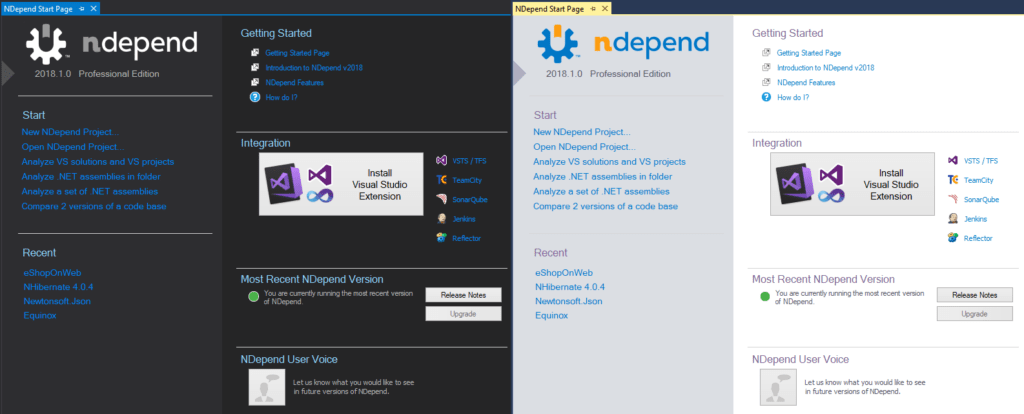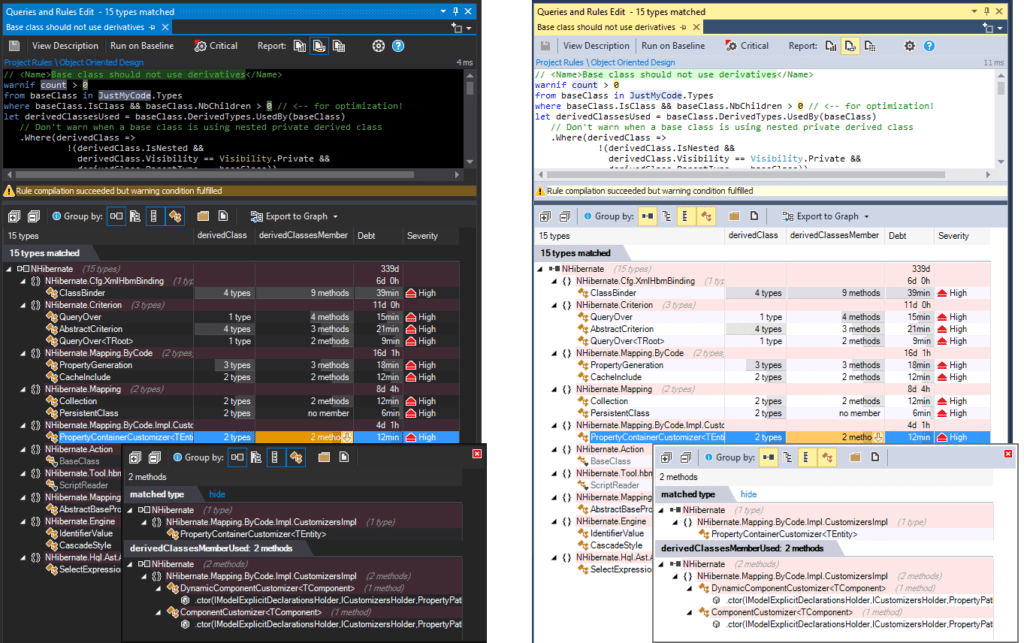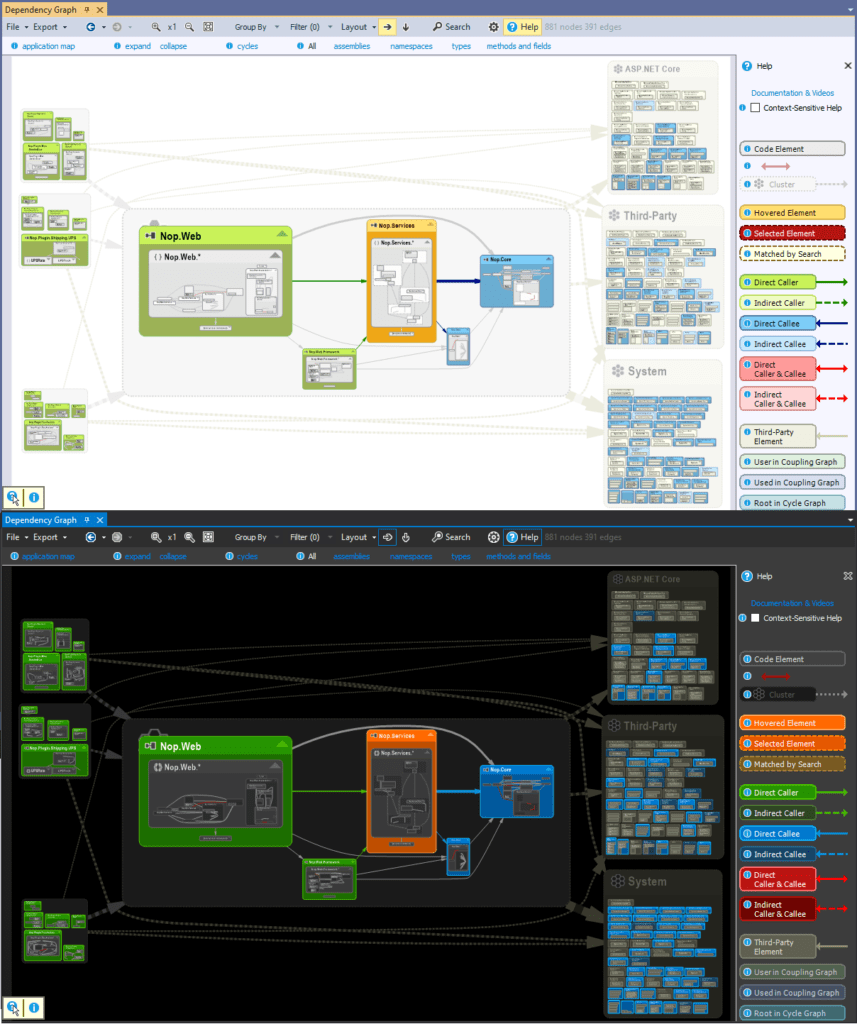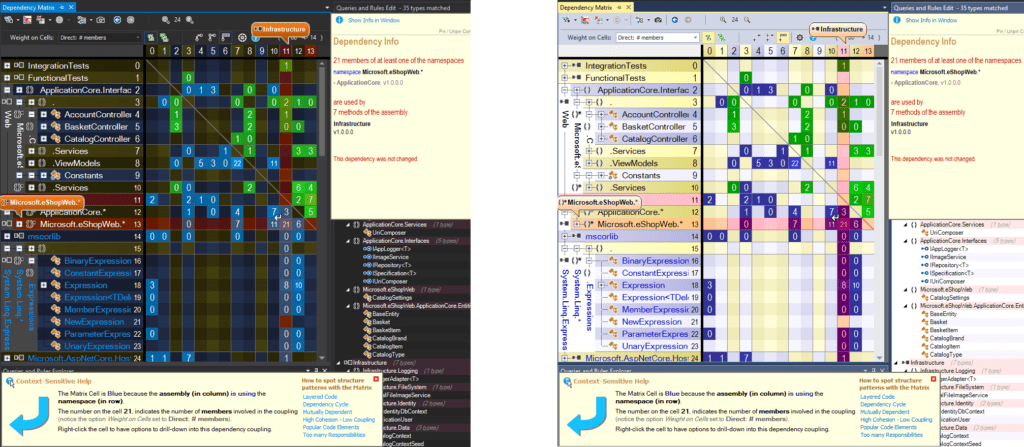Introduction
In the dynamic world of .NET C# development, maintaining high code quality is essential. Enter NDepend, a powerful static analysis tool designed to help developers ensure their code is robust, maintainable, and efficient. This blog post will explore how NDepend can be integrated into everyday .NET C# development, highlighting its pros and cons. We’ll also provide a glimpse into its user interface with screenshots to illustrate its functionalities.
What is NDepend?
NDepend is a static analysis tool that integrates seamlessly with Visual Studio. It provides a comprehensive suite of features, including code metrics, dependency graphs, code rules, and technical debt estimation. NDepend helps developers understand their codebase better, identify potential issues early, and maintain high standards of code quality.

Pros of Using NDepend
1. Comprehensive Code Analysis
NDepend offers in-depth analysis of your codebase, providing metrics on code complexity, code coverage, and potential code smells. This helps developers quickly identify areas that need attention.
2. Customizable Code Rules
NDepend comes with a wide range of predefined code rules, but it also allows developers to create custom rules using LINQ queries. This flexibility ensures that the tool can be tailored to fit the specific needs of your project.

3. Dependency Graphs
Understanding dependencies within your codebase is crucial for maintaining a clean architecture. NDepend’s dependency graphs visually represent these relationships, making it easier to spot problematic dependencies.


4. Technical Debt Estimation
NDepend estimates the technical debt of your codebase, giving you a clear picture of how much work is required to bring your code up to standard. This is particularly useful for prioritizing refactoring efforts.
5. Integration with Build Processes
NDepend can be integrated into your CI/CD pipeline, ensuring that code quality checks are part of your automated build processes. This helps maintain a consistent level of code quality across all builds.
Cons of Using NDepend
1. Steep Learning Curve
NDepend is a powerful tool, but with great power comes complexity. New users might find the vast array of features overwhelming initially, and it can take time to learn how to use the tool effectively.
2. Performance Overhead
Running comprehensive analyses on large codebases can be time-consuming and may impact performance. It’s important to balance the depth of analysis with the available resources.
3. Cost
NDepend is a commercial tool, and its licensing cost can be a consideration, especially for small teams or individual developers. However, the investment can pay off in terms of improved code quality and reduced maintenance costs.
Also, NDepend is now limited only to those developers who use the Visual Studio toolchain. If you are using Rider from JetBrains, you simply cannot use NDepend; at least not via a plugin.
Everyday Use of NDepend
Incorporating NDepend into daily development workflows involves setting up regular code quality checks, either manually or as part of automated build processes. Developers can use NDepend’s dashboards and reports to monitor code quality trends over time, ensuring that issues are addressed promptly.
Here’s a typical workflow with NDepend:
- Initial Analysis: Run NDepend on your codebase to get a baseline report. This helps you understand the current state of your code quality.
- Set Up Rules: Customize the code rules to match your project’s coding standards and best practices.
- Continuous Monitoring: Integrate NDepend into your CI/CD pipeline to ensure continuous monitoring of code quality.
- Address Issues: Use the reports and graphs generated by NDepend to identify and fix issues in the code.
Conclusion
NDepend is a valuable tool for .NET C# developers, offering a range of features to enhance code quality and maintainability. While it has a learning curve and some performance considerations, the benefits of comprehensive code analysis, customizable rules, and technical debt estimation make it a worthwhile investment for many development teams.
By integrating NDepend into your development workflow, you can gain deeper insights into your codebase, maintain high standards of quality, and ultimately deliver better software.
Additional Resources
For more information on NDepend, visit their official website and explore their detailed Ndepend.
Feel free to share your experiences with NDepend in the comments below. Happy coding!
